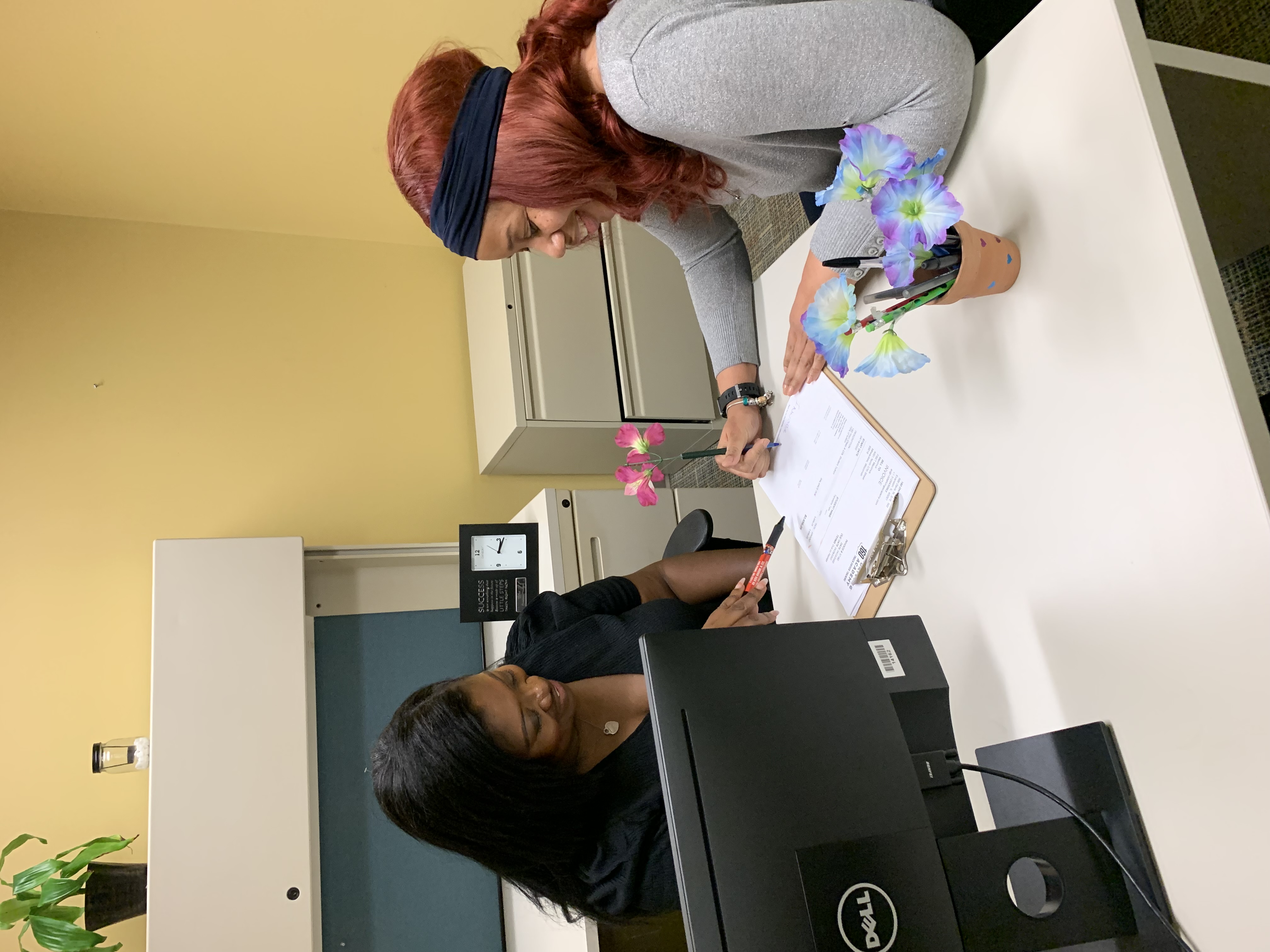City in transition: taking a less traditional path to career and stability in Milwaukee

When Mr. Williams walked into the Milwaukee FoodShare Employment and Training (FSET) Program office at the Milwaukee Area Technical College (MATC) in Walker's Square in April 2021, he was intent on one thing: getting his kids back. The single father of two children, ages 7 and 12, was facing homelessness and needed to find a job.
Mr. Williams had plenty of experience, having worked in a variety of positions for temp agencies in the city. What he needed was something stable and long-term that would enable him to support his family. What he received was a new career, housing, and a chance to rebuild his life.
When Mr. Williams enrolled in the FSET program, he was highly motivated to make a change in his life, but at the same time unsure of exactly what type of career he wanted to pursue. Working closely with his FSET case manager, he completed an informal assessment to compile his skills, education, and experience and enable her to better assist him with finding employment. Through career assessments and conversations, his case manager learned he had a high school equivalency diploma, some college experience, a good driving record, and he enjoyed driving and working with people. Mr. Williams realized he wanted to become a truck driver. His case manager submitted a commercial driver's license (CDL) vocational training referral, and he was scheduled to begin training within less than one week!
Next, Mr. Williams met with a community resource navigator who helped him obtain housing referrals to address his need for stable housing. Through FSET's partnership with 4C's, he received childcare authorization which allowed him to maintain his focus on CDL training without the additional worry about who would watch his children. Mr. Williams successfully completed CDL training and began working for a local trucking company. After a month of working as a CDL driver, he informed his case manager that his current employer provided an opportunity for him to become an independent contractor. To do so, he had to obtain CDL insurance for his truck, which cost $3,000. He further expressed his desire to become an entrepreneur, and with support from FSET funding, he obtained the needed insurance and is now working as an independent truck driver making over $85,000 per year!
"Stories like his are what make this program really worthwhile," says Autumn Morgan, the Milwaukee FSET project director, which is operated by Maximus. "What we may think is a small thing (to provide) could be a big thing for our clients."
Situation
Maximus helps FSET participants overcome barriers to employment. This includes providing educational training, teaching job skills, connecting clients to childcare, and ensuring they have a roof over their heads and enough to eat.
Milwaukee sits on the western edge of Lake Michigan and is the fifth-largest city in the Midwest. It is also a city in transition, where workers are re-assessing their priorities and job interests following COVID-19. The FSET program plays a critical role in helping community members reach their goals. With a goal of helping FoodShare participants get training, build job skills, and find employment, the program goes the extra mile – building stability for participants, their families, and the broader Milwaukee community. The over 150 dedicated Maximus employees across 5 offices throughout the city facilitate this important work.
Solution
Between September 2019 and February 2022, Maximus helped 4,259 people secure jobs. And, on average, the office works with 2,100 participants per month, many of whom face circumstances similar to that of Mr. Williams.

Post-COVID, both FSET participants and state agencies are changing their views on career paths that move people toward resilience. Where once FSET participants would take any available job, many are opting for a less traditional path.
"COVID was a lightbulb moment for most of our clients," says Morgan. "When the world shut down, people had more time to reflect, to put more thought into what they wanted to do."
Clients are interested in pursuing career paths or an education track. Many want to start their own business. This is far different than before when women were interested in positions in healthcare, and men were drawn to hands-on work like manual labor.
Employers' needs are changing, too. They are looking for candidates who are not only qualified but also flexible and able to learn quickly. Job seekers who accept employment in fields of interest will very likely see pay increases or promotions more quickly as employers ask them to wear more or different hats. Preparing our participants for this journey is key.
How we did it – taking a holistic approach
To increase engagement on the part of participants and employers alike, Maximus launched several initiatives, including:
- A SMS Wellness Check program where FSET participants receive alerts about upcoming job fairs or training. The program also helps case managers determine not only the needs of individual participants but the needs of the entire family. Participants can share if they need help with housing, childcare, food, or other needs that might impact their ability to obtain employment.
- A Community Steering Committee comprises local and state leaders, community partners, participants, and employers. The group meets regularly to exchange information to better serve clients. Maximus also seeks feedback from employers and training partners.
- Community resource navigators who help promote FSET services within the community.
- A new website and webchat to help answer immediate questions and facilitate enrollment.
- Partnerships with education and training programs, including MATC, and a Career Pathways pilot program offered in partnership with Literacy Services of Wisconsin that provides participants with a direct pipeline to obtain their HSED/GED and begin a degree program at MATC.
- Extensive relationships with employers and other service providers.
- Resource fairs that bring participants together with employers, educators, and other community service providers to connect them with housing, childcare, or other service needs.
At the end of the day, Morgan feels for the people who have the courage to seek help. She makes certain they feel heard and walk away with the sense that there is a path forward for them.
"People come to us in different states and situations, some of them in crisis. They're looking for better opportunities," says Morgan. "How we respond can literally make or break them."
That's why when Mr. Williams walked into our Wisconsin office and expressed interest in a commercial truck driving license, the team set about making it happen. They got him into a training course, and FSET was able to cover the fees for his commercial truck driving license. From there, a company offered him a permanent job as a subcontractor and his own semi-truck. In a span of five months, Williams had housing, his own truck, and work as an independent contractor making over $85,000 a year. Most important of all, he also has his children back.